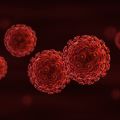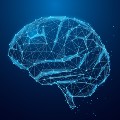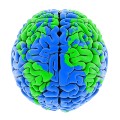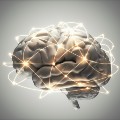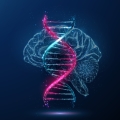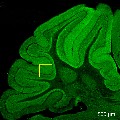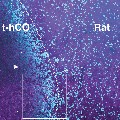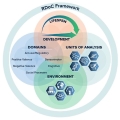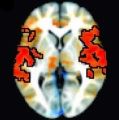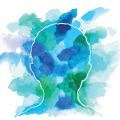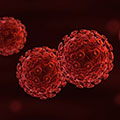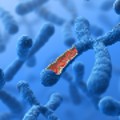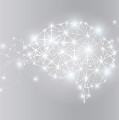Science Updates from 2024
- Primary Care Can Play Key Role in Suicide Prevention
-
Adding suicide care practices to routine adult primary care visits reduced suicide attempts by 25% in the months after the visit.
- Researchers Investigate Potential Treatment for Eliminating HIV from the Brain
-
In a recent NIMH-funded study, researchers explored a potential new way of clearing HIV from the brain by testing a drug that targets a type of immune cell known as macrophages.
- Brain Connectivity Linked With Cognition in People With Early Psychosis
-
An NIMH-funded study identified consistent links between brain connectivity and cognitive function in people with early stage psychosis and people at high risk who later developed psychosis.
- Improving Firearm Safety in Pediatric Primary Care
-
An automatic reminder supported by low-burden facilitation increased delivery of a universal secure firearm storage program during pediatric primary care.
- New Hope for Rapid-Acting Depression Treatment
-
A new study, funded in part by the National Institute of Mental Health, showed that a new medication derived from ketamine is safe and acceptable for use in humans, setting the stage for clinical trials testing it for hard-to-treat mental disorders like severe depression.
- My Life With OCD
-
• 75th Anniversary
Graduate student and mental health advocate Uma Chatterjee, M.S., shares her personal journey navigating life with OCD.
- Researchers Fully Map Neural Connections of the Fruit Fly Brain
-
A scientific team supported by the National Institutes of Health (NIH) unveiled the first complete map of the neural connections of the common fruit fly brain.
- Smartphone Data May Not Reliably Predict Depression Risk in Diverse Groups
-
NIMH-supported research suggests AI tools built on smartphone data may struggle to predict clinical outcomes like depression in large and diverse groups of people.
- New Gene Delivery Method Paves the Way for Advanced Brain Therapies
-
A new study, funded in part by the National Institute of Mental Health, describes a promising new gene delivery vehicle that could advance treatment for brain disorders.
- Increases Found in Preteen Suicide Rate
-
Researchers at the National Institutes of Health (NIH) found that rates of preteen suicide (ages 8-12) have been increasing by approximately 8% annually since 2008.
- Youth With Conduct Disorder Show Widespread Differences in Brain Structure
-
The largest neuroimaging study of conduct disorder to date, with funding from NIH, has revealed extensive changes in brain structure among young people with the disorder. The largest difference was a smaller area of the brain’s outer layer, known as the cerebral cortex, which is critical for many aspects of behavior, cognition and emotion.
- Collaborative Care Could Help Reduce Disparities in Mental Health Treatment
-
In an NIMH-funded study, a comprehensive collaborative care intervention significantly reduced post-traumatic stress disorder (PTSD) symptoms among trauma patients from racial and ethnic minority backgrounds.
- Understanding the Availability of Mental Telehealth Services
-
In an NIMH-funded study, researchers examine the availability and structure of mental telehealth services.
- Digital Autism Screening Tool Could Enhance Early Identification
-
A tablet-based screening tool that analyzes children’s behavior in response to specific video clips shows promise for enhancing early autism screening, according to a study supported by NIMH.
- Noninvasively Stimulating Deep Brain Areas to Treat Depression Symptoms
-
In a new neuroimaging study funded by the National Institute of Mental Health, researchers used repetitive transcranial magnetic stimulation to target regions deep in the brain to help reduce depression symptoms.
- NIH Announces Winners of 2023-2024 High School Mental Health Essay Contest
-
Learn about the 24 youth who received prizes in the national essay contest addressing mental health and mental health stigma.
- Scientists Map Networks Regulating Gene Function in the Human Brain
-
An NIMH-funded research consortium has produced the largest and most advanced multidimensional maps of gene regulation networks in the brains of people with and without mental disorders.
- Characterizing Childhood Irritability Across Ages and Stages
-
NIMH-supported research captures expressions of irritability across developmental stages via a clinically relevant measurement tool: the MAPS Temper Loss Scale.
- Basic Research Powers the First Medication for Postpartum Depression
-
• 75th Anniversary
Decades of NIMH-supported basic research led to a pioneering treatment for postpartum depression and continues to power exciting advances in women's mental health care.
- Understanding the Underpinnings of Sensory Hypersensitivity in SCN2A-Associated Autism
-
In this NIMH-supported study, researchers investigated the neural underpinnings of sensory hypersensitivity in SCN2A-associated autism.
- Gene-Based Therapy Restores Cellular Development and Function in Brain Cells From People With Timothy Syndrome
-
In a proof-of-concept study, researchers demonstrated the effectiveness of a potential new therapy for Timothy syndrome, an often life-threatening and rare genetic disorder that affects a wide range of bodily systems, leading to severe cardiac, neurological, and psychiatric symptoms as well as physical differences such as webbed fingers and toes.
- Novel Treatment Helps Children With Severe Irritability
-
A new study by NIMH researchers demonstrated the effectiveness, feasibility, and safety of exposure-based cognitive behavioral therapy for severe irritability and temper outbursts in children. The positive results set the foundation to continue exploring exposure therapy as a potential treatment for childhood irritability.
- Revolutionizing the Study of Mental Disorders
-
• 75th Anniversary
The Research Domain Criteria Initiative (RDoC) represented a new way to conceptualize the study of mental illnesses. In celebration of NIMH's 75th Anniversary, we reflect on the beginning and progress of this initiative.
- Study Reveals Potential Neural Marker for Social Impairment in Psychotic Disorders
-
Research funded by NIMH found a link between a low level of social interest among people with psychotic disorders and brain regions in the social motivation system.
- NIH Researchers Identify Brain Connections Associated With ADHD in Youth
-
Researchers at the National Institutes of Health (NIH) have discovered that symptoms of attention-deficit/hyperactivity disorder (ADHD) are tied to atypical interactions between the brain’s frontal cortex and information processing centers deep in the brain.
- Life with Schizoaffective Disorder
-
• 75th Anniversary
In this lived experience feature story, Ray Lay describes the challenges of living with schizoaffective disorder and his later success in life.
- Dr. Joshua Gordon to Step Down as Director of the National Institute of Mental Health
-
On February 29, 2024, Joshua A. Gordon, M.D., Ph.D., announced his decision to end his tenure as the director of the National Institute of Mental Health.
- Intervention Reduces Likelihood of Developing Postpartum Anxiety and Depression by More Than 70%
-
Results from a large clinical trial funded by the National Institutes of Health show that an intervention for anxiety provided to pregnant women living in Pakistan significantly reduced the likelihood of the women developing moderate-to-severe anxiety, depression, or both six weeks after birth.
- Decades of Dedication and Collaboration: Unraveling the HIV Mystery
-
• 75th Anniversary
In celebration of NIMHs 75th anniversary, we reflect on decades of work by the institute to understand and eradicate HIV.
- Cognitive Behavioral Therapy Alters Brain Activity in Children With Anxiety
-
Researchers at the National Institute of Mental Health found that unmedicated children with anxiety disorders show widespread overactivation in brain functioning and that treatment with cognitive behavioral therapy led to a clinically significant drop in anxiety symptoms and improved brain functioning.
- Researchers Expand Understanding of Genetic Mechanisms Underlying Fragile X Syndrome
-
An NIMH-supported study of the 3D genome revealed widespread silencing of genes with important roles in brain function in fragile X syndrome and related disorders.
- NIMH Hosts 75th Anniversary Symposium
-
• 75th Anniversary
The National Institute of Mental Health recently hosted a symposium to kick off its 75th Anniversary celebrations.
- Using Games to Explore the Mind
-
The National Institute of Mental Health (NIMH) and the non-profit organization The Many Brains Project partnered with the National Institutes of Health (NIH) All of Us Research Program to adapt a series of new game-like tasks that are now part of the All of Us Research Program’s participant experience.
- Disparities in Psychotic Disorder Diagnoses and Other Negative Health Outcomes
-
NIMH researchers found racial and ethnic disparities in rates of psychotic disorders, which were associated with co-occurring medical conditions and negative health outcomes.

